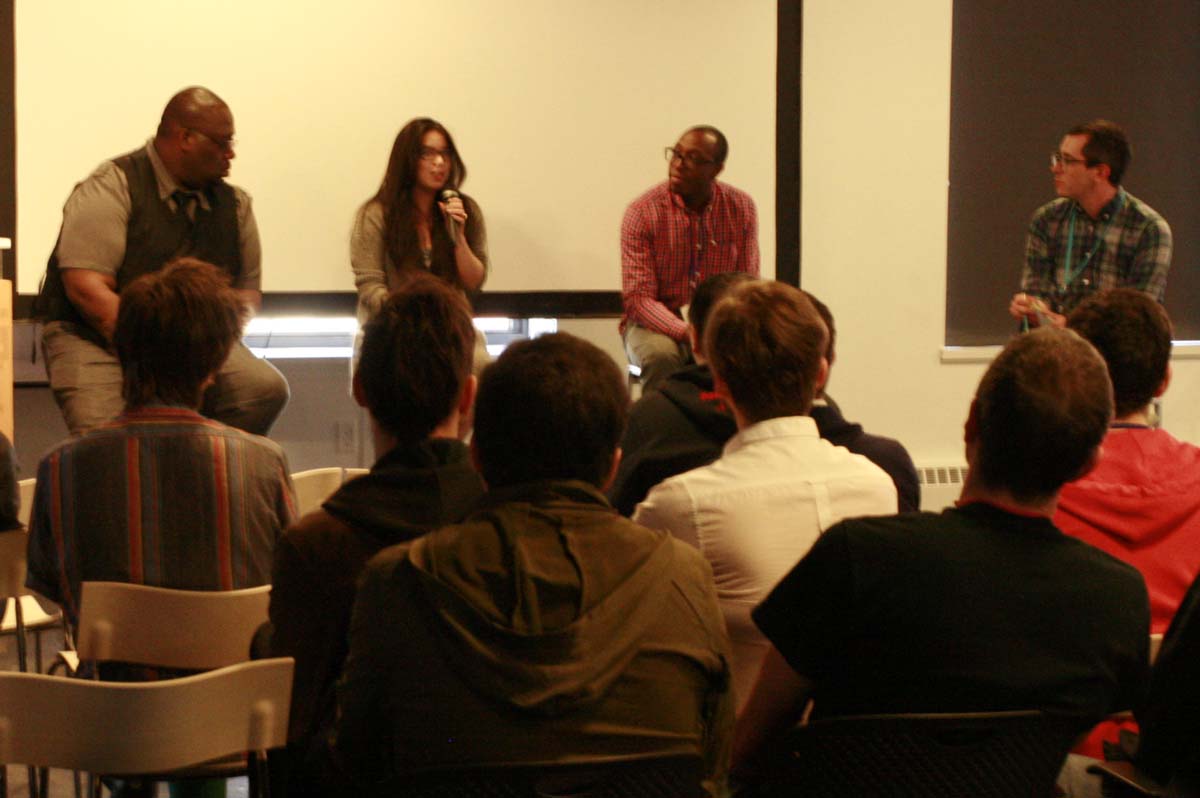It seems that gaming communities only get attention when they cause some kind of controversy. That was the consensus among the panelists discussing diversity among organized players of fighting video games this weekend. The media never picks up stories about efforts like Extra Life, which raises money for children’s hospitals, or Awesome Games Done Quick, which supports cancer prevention.
First made popular by the Street Fighter series, fighting games have ebbed and flowed a bit over the years. The culture has become deep enough now, though, that there are ranked players, world champions and networks to help players train and improve. The perception of these groups was discussed by three leaders in the scene at Downtown’s Different Games conference, which we posted a preview about last week.
The four panelists were Wynton B. Smith (former competitor turned commentator), Rodney Reid (a fighting game player since it kicked off in the arcade era), Samantha Hancock (member of the team Empire Arcadia) and moderated by PhD student Simon Ferrari.
The panel opened with a discussion of the distinction between players who got into fighting games in the arcades and those who found their interest on the net. “There has always been a difference of philosophy on both sides,” Reid said.
As arcades have declined (Reid called them all but extinct) and the public social effect they had, the scene is experimenting with new ways to bring new players in. Some vets are organizing open sessions. There are events organized for unranked players only. New institutions are opening up in out of the way places, such as Sunset Park’s Next Level, which has a weekly tournament on Wednesdays.
Hancock spoke to the remaining sexism within the subculture, saying it’s still there, especially online. Fellow panelists spoke to the need for gamers to police gamers around issues like that, but Hancock wrapped it up by saying “I probably will become a world champion one day, because I want to play … when you love something, you can’t let anyone take it away from you.”
Here are some photos from other scenes around Different Games on Saturday.
[slideshow_deploy id=’16150′]







